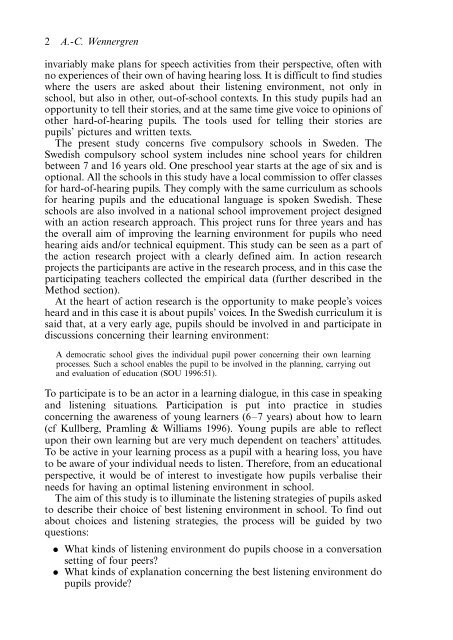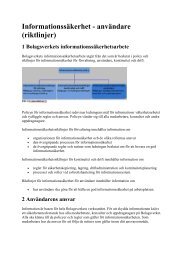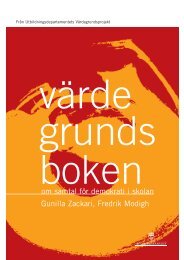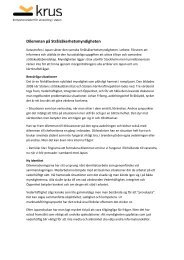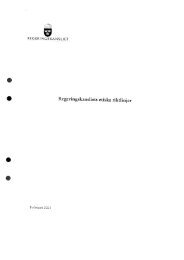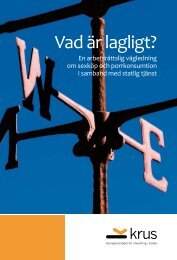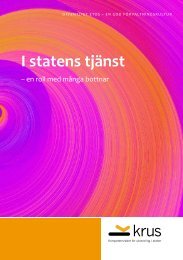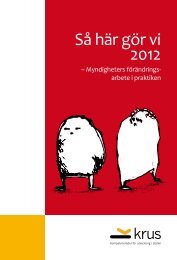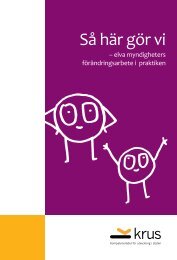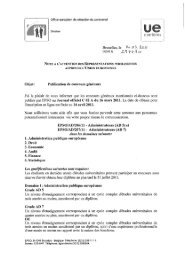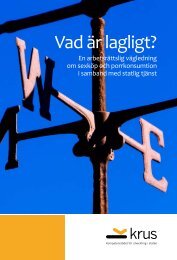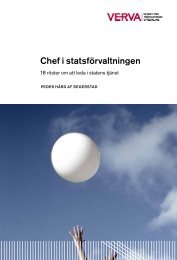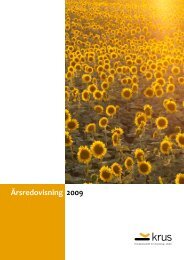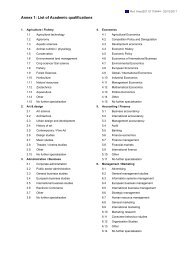Dialogkompetens i skolans vardag - Publikationer - LTU - Luleå ...
Dialogkompetens i skolans vardag - Publikationer - LTU - Luleå ...
Dialogkompetens i skolans vardag - Publikationer - LTU - Luleå ...
Create successful ePaper yourself
Turn your PDF publications into a flip-book with our unique Google optimized e-Paper software.
2 A.-C. Wennergren<br />
invariably make plans for speech activities from their perspective, often with<br />
no experiences of their own of having hearing loss. It is difficult to find studies<br />
where the users are asked about their listening environment, not only in<br />
school, but also in other, out-of-school contexts. In this study pupils had an<br />
opportunity to tell their stories, and at the same time give voice to opinions of<br />
other hard-of-hearing pupils. The tools used for telling their stories are<br />
pupils’ pictures and written texts.<br />
The present study concerns five compulsory schools in Sweden. The<br />
Swedish compulsory school system includes nine school years for children<br />
between 7 and 16 years old. One preschool year starts at the age of six and is<br />
optional. All the schools in this study have a local commission to offer classes<br />
for hard-of-hearing pupils. They comply with the same curriculum as schools<br />
for hearing pupils and the educational language is spoken Swedish. These<br />
schools are also involved in a national school improvement project designed<br />
with an action research approach. This project runs for three years and has<br />
the overall aim of improving the learning environment for pupils who need<br />
hearing aids and/or technical equipment. This study can be seen as a part of<br />
the action research project with a clearly defined aim. In action research<br />
projects the participants are active in the research process, and in this case the<br />
participating teachers collected the empirical data (further described in the<br />
Method section).<br />
At the heart of action research is the opportunity to make people’s voices<br />
heard and in this case it is about pupils’ voices. In the Swedish curriculum it is<br />
said that, at a very early age, pupils should be involved in and participate in<br />
discussions concerning their learning environment:<br />
A democratic school gives the individual pupil power concerning their own learning<br />
processes. Such a school enables the pupil to be involved in the planning, carrying out<br />
and evaluation of education (SOU 1996:51).<br />
To participate is to be an actor in a learning dialogue, in this case in speaking<br />
and listening situations. Participation is put into practice in studies<br />
concerning the awareness of young learners (67 years) about how to learn<br />
(cf Kullberg, Pramling & Williams 1996). Young pupils are able to reflect<br />
upon their own learning but are very much dependent on teachers’ attitudes.<br />
To be active in your learning process as a pupil with a hearing loss, you have<br />
to be aware of your individual needs to listen. Therefore, from an educational<br />
perspective, it would be of interest to investigate how pupils verbalise their<br />
needs for having an optimal listening environment in school.<br />
The aim of this study is to illuminate the listening strategies of pupils asked<br />
to describe their choice of best listening environment in school. To find out<br />
about choices and listening strategies, the process will be guided by two<br />
questions:<br />
. What kinds of listening environment do pupils choose in a conversation<br />
setting of four peers?<br />
. What kinds of explanation concerning the best listening environment do<br />
pupils provide?


